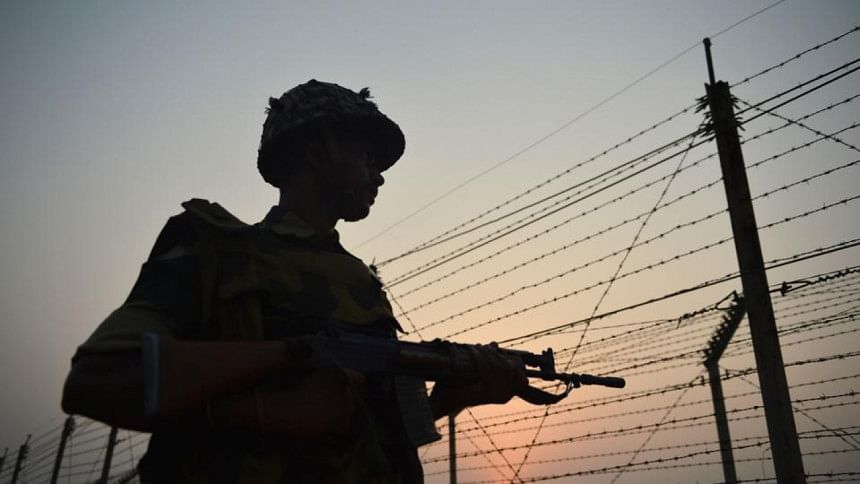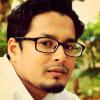Border Killings by BSF: 43 Bangladeshis killed this year

There has been a sharp rise in border killings as 43 Bangladeshis were either shot dead or tortured to death this year by the Indian Border Security Force (BSF), according to Ain o Salish Kendra data.
Last year, the number was 14.
“Of the 43 Bangladeshis, 37 were shot dead and six others tortured to death,” Abu Ahmed Faijul Kabir, ASK’s senior coordinator, told The Daily Star yesterday, citing the rights body’s annual report, to be launched at the capital’s Jatiya Press Club today.
ASK data show that 46 people were killed along the Bangladesh-India border allegedly by the BSF in 2015. The number came down to 31 in 2016 and 24 in 2017.
Rights defenders describe such killings of unarmed and defenceless people as cold-blooded murders.
The Indo-Bangla border is routinely crossed by locals for trade and commerce.
The latest border killing was reported on December 25, at a time when a director general level conference between Border Guard Bangladesh (BGB) and the BSF was still underway in New Delhi.
Killing or injuring innocent Bangladeshi citizens and firing on them on the border was one of the agendas of the meeting from the BGB.
Earlier in June at another DG-level talks in Dhaka, the then BSF director general Rajni Kant Mishra had termed border killings as “unfortunate deaths” and said the number of such incidents increased.
Border killings have continued for years despite a commitment from top BSF officials that the number of such deaths would be brought to zero.
Apart from killings, torture frequently takes place on the borderline.
During the last week of April, BSF members tortured a Bangladeshi man by pulling out all 10 of his fingernails with pliers after he was caught for “illegal entry”.
Such incidents of torture have caught media attention and the BSF has been heavily criticised by human rights defenders.
Talking to this newspaper, Mizanur Rahman, former chairman of National Human Rights Commission, termed such incidents “high-handedness of India”.
“…Unfortunately our government is not that vocal about this issue. Our ministers or secretaries always say that they bring up the issue for discussion with their Indian counterpart. But we don’t see any improvement.
“Our government will keep on saying that the bilateral relationship with India is better than any time in the past. On the other hand, such border killings will go on … It’s very unfortunate,” he said, adding that now the government should step up its efforts to address the issue.
Talking to The Daily Star earlier, Brad Adams, executive director of Human Rights Watch’s Asia Division, had said despite promises by successive Indian governments to end abuses and hold its forces accountable, there appeared to be complete impunity for BSF soldiers.
He mentioned that there has been a renewed push by the Indian government to stop illegal cattle trade at the border since 2014. “However, a duty to prevent cattle smuggling or other illegal activities at the border does not give the BSF a licence to kill,” he said.
Since 2000, more than 1,000 Bangladeshi nationals have been killed in border areas, according to rights defenders who described the areas as “killing fields”.
Of the killings, the Felani murder caught everyone’s attention. The 15-year-old was gunned down by some BSF members on January 7, 2011, when she, along with her father, was returning home from India through Anantapur border along Phulbari upazila of Kurigram.
The photo of Felani’s body hanging upside down from barbwire fence sparked outcry and condemnation throughout the country. Nearly nine years on, her family’s wait for justice seems far from over.

 For all latest news, follow The Daily Star's Google News channel.
For all latest news, follow The Daily Star's Google News channel. 



Comments